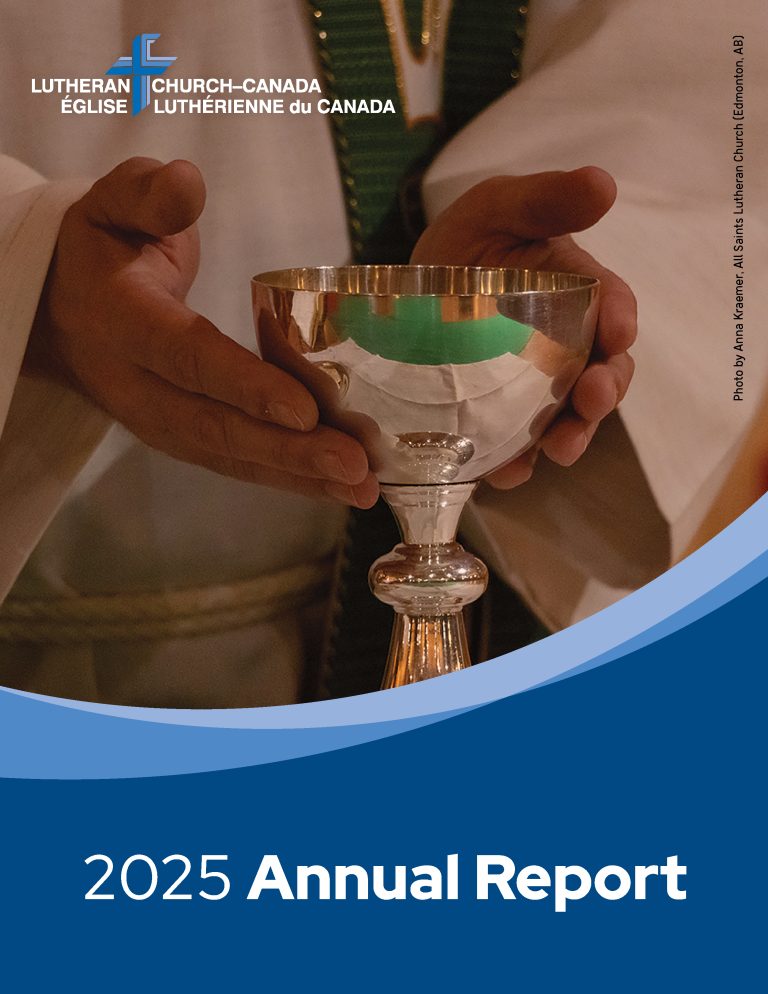#endthekilling: New urgency for 2016 March for Life with impending legalization of physician assisted suicide

OTTAWA – Pro-life Canadians are preparing for this year’s National March for Life in Ottawa, with Lutherans planning to be among them.
This year’s theme is #endthekilling and refers to the twin concerns of abortion and euthanasia. “Canadian governments have permitted the killing of preborn children for 47 years now, bringing the death toll to well over 4 million,” organizers write. “Now in 2016 with the impending legalization of euthanasia, the Supreme Court has demanded we begin to kill people at the end other end of the spectrum too, in their old age.”
Lutherans for Life-Canada (LFL-C) President Clifford Pyle is encouraging Canadian Lutherans to speak out on life issues. “God calls His people to defend the sanctity of life at all stages, from conception to natural death,” he said. “It is important for Canadian Lutherans to make their views heard, especially now as our government prepares legislation on the issue of physician assisted suicide.” LFL-C is a listed service organization of Lutheran Church–Canada.
The 2016 March for Life will take place May 12, 2016. While LFL-C is not officially participating as an organization this year, some of their board members will be present for the march and are encouraging other Lutherans to also march as individuals. President Pyle notes that if people are looking for a parking spot, LFL-C members will be gathering at St. Luke’s Lutheran Church at 326 MacKay Street in Ottawa. A short devotion or prayer will be said before joining the march on Parliament Hill.
Physician Assisted Suicide
While the issue of abortion has been a longstanding concern in Canada, physician assisted suicide is a relatively new one. The Supreme Court of Canada decriminalized physician assisted suicide in February 2015, but the federal government has been giving an extension until June 2016 in order to craft new legislation on the issue. Even so, some individuals are being given exemptions by the courts to seek physician assisted suicide now. At least one of these—an Ontarian man—committed physician assisted suicide in March. And Quebec set up its own policies for physician assisted suicide in December 2015.
A recent parliamentary report has recommended allowing physician assisted suicide in a much wider number of instances than indicated in 2015’s Supreme Court of Canada ruling. In addition to providing physician assisted suicide for terminally ill competent adults, the report encouraged giving dementia patients the option to make advance requests for assisted suicide, and legalizing assisted suicide for people suffering from mental health issues. It also encouraged offering assisted suicide to terminally ill children and youth. An Angus Reid Institute survey in the weeks following the report’s release suggested strong opposition to these elements: 78% rejected the idea that psychological suffering should be grounds for physician assisted suicide, with even higher numbers rejecting the idea that minors suffering mental illness should be allowed to commit assisted suicide.
The parliamentary report also encouraged the institution of laws which would force objecting physicians to facilitate euthanasia by referring patients to another doctor willing to perform the procedure, exacerbating concerns in Canada over steadily increasing impingements on conscience and religion freedoms of health care professionals. Canadian physicians remain divided on the legalization of physician assisted suicide, and the Canadian Medical Association objects to forcing physicians to refer.
The federal government is expected to unveil proposed legislation on these issues, perhaps as early as next week (April 11-15). Some news sites today are reporting the recommended legislation will not be as permissive as the earlier parliamentary report.
Late last year, Lutheran Church-Canada joined Catholics, Evangelicals, and other Canadian religious leaders in issuing a declaration on euthanasia and physician assisted suicide, opposing the practices and calling for greater support for palliative care in Canada. The declaration also encouraged freedom for healthcare professionals with conscience concerns on euthanasia and physician assisted suicide. Since then, the Christian Medical and Dental Society, along with other groups, has organized a website encouraging Canadians to defend the conscience rights of Canadian healthcare workers. You can find more information on their website at www.canadiansforconscience.ca.
Lutherans can find additional pro-life resources at LFL-C’s website and on the website of their American counterpart.
———————



